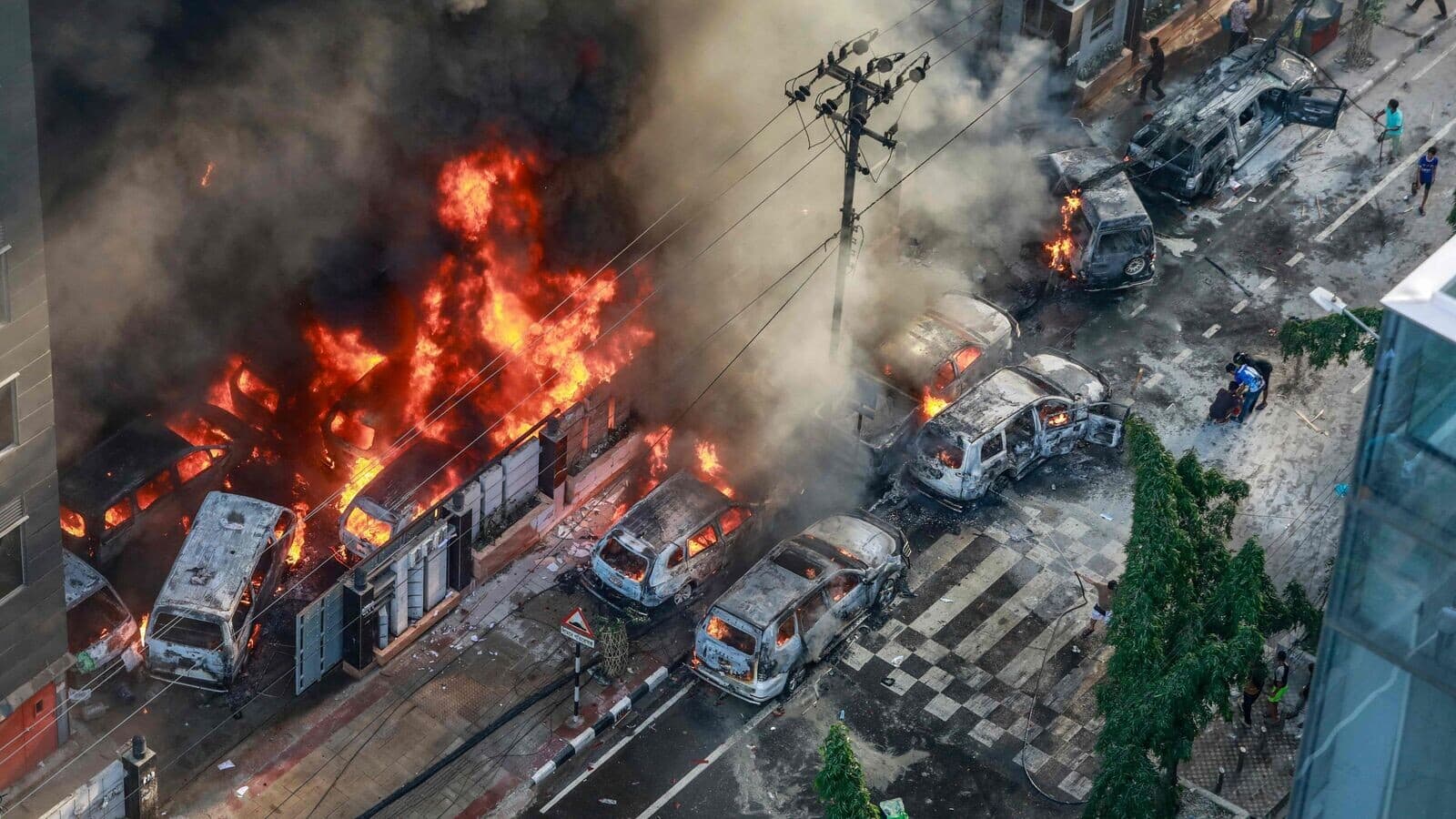
Unrest in Bangladesh kills 39: What we know so far
What's the story
Over 39 people have died in the violence over a controversial government job quota system in Bangladesh. The unrest was triggered by the government's decision to reserve up to 30% of government jobs for relatives of veterans from the country's 1971 war of independence against Pakistan. Students, who are primarily leading these demonstrations, argue that this system is discriminatory and advocate for a merit-based approach.
Injured
Hundreds of people also injured
Hundreds of people have also been injured as police use tear gas and rubber bullets to disperse demonstrators who set fire to vehicles, police posts, and other buildings. Following Thursday's violent protests, streets in Dhaka appeared desolate on Friday. According to Reuters, Bangladesh TV news outlets did not transmit on Friday. According to outage monitor NetBlocks, Bangladesh had a "near-total" internet outage as night fell. Most international phone calls were not connected, and internet calls could not be finished.
Demands voiced
Protesters demand apology, justice from Prime Minister
The protests escalated on Sunday following an appearance by Prime Minister Sheikh Hasina on state broadcaster BTV. She had asked, "If the grandchildren of freedom fighters do not receive [quota] benefits, who would get it? The grandchildren of Razakars?" "Razakar" is a derogatory term in Bangladesh, referring to those who collaborated with the Pakistani military during the 1971 Liberation War.
Accusations made
Government accuses opposition of inciting unrest
Following the prime minister's comments, clashes broke out at Dhaka University between protesters and members of the student wing of the ruling Awami League party, the Bangladesh Chhatra League (BCL). The demonstrators are now demanding an apology from Hasina and justice for those killed during the protests. "Our first demand is that the prime minister must apologise to us," a protester told AFP. "Secondly, justice must be ensured for our killed brothers," she added.
System controversy
Quota system reinstatement sparks renewed protests
The quota system, which was suspended in 2018 following large student protests, was reinstated last month by a high court decision after relatives of 1971 veterans filed petitions. This decision led to renewed protests and violent clashes between students and police at Jahangir Nagar University outside Dhaka and Dhaka University. The Supreme Court has since suspended the high court's ruling and promised a verdict by August 7.
Call for calm
Prime Minister urges patience amid ongoing protests
"I am requesting all to patiently wait until the verdict is delivered. I believe our students will get justice from the apex court. They will not be disappointed," Hasina urged protesters. Meanwhile, international embassies, including those of the United States and India, have issued advisories to their citizens to avoid demonstrations and large gatherings in Bangladesh. Amnesty International, along with the United Nations and the US, have also urged the Bangladeshi government to protect peaceful protesters from violence.